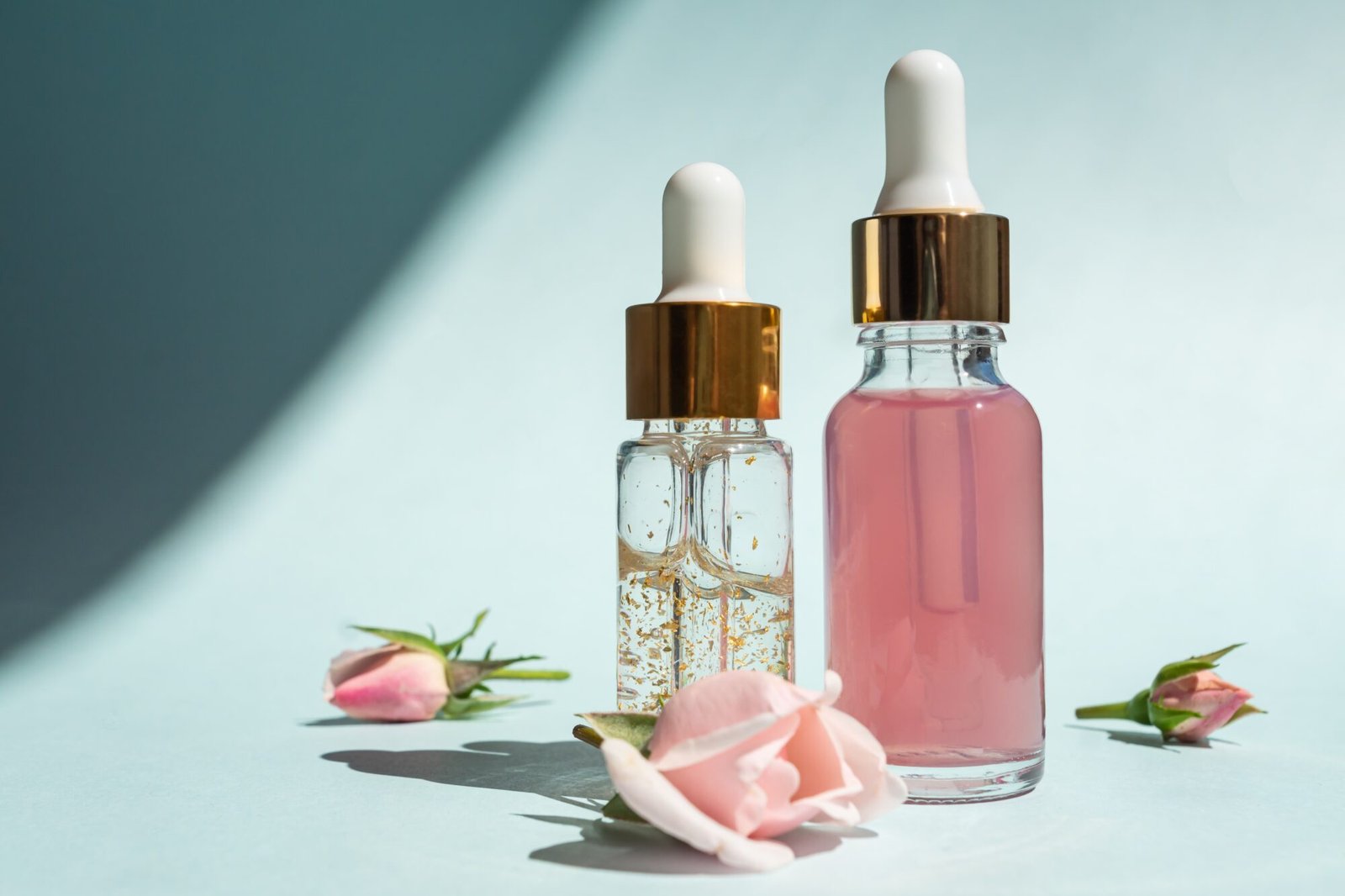Introduction
The correct skincare products may be elusive, particularly for mixed skin. This skin type is complex since it is greasy and dry. Understanding how to meet these demands is essential for skincare enthusiasts. Serums for combination skin make you sparkle. You’ll learn valuable strategies and find the finest combination skin serums.
Why is Combination Skin essential?
Dry and greasy spots characterize combination skin. Cheek skin is dry or normal, whereas the T-zone (forehead, nose, and chin) is oily. Dual skin might make it hard to find products that match its needs. Hydrating dry areas and controlling T-zone oil production are essential.
Combination skin is unpredictable and complex to manage. Weather, diet, and hormones affect the skin. It would be best if you adapted your skincare routine to these changes.
Combination skin may be transformed with lightweight serums that offer targeted active ingredients. Select a serum to address specific concerns and maintain a healthy complexion.
Benefits of Using Serums for Combination Skin
Serums give powerful active substances to the skin via deep penetration. These treatments are beneficial for uneven texture, acne, and dryness. Serums assist mixed skin.
Serums reduce shine and pores by regulating T-zone oil production. This may prevent breakouts and keep skin fresh all day. Serums also moisturize dry skin and reduce irritation and flakiness.
Another benefit of serums is their adaptability. You may layer them with different skincare products to tailor your regimen to mixed skin. Most are lightweight, so they won’t clog pores or increase oiliness.
Key Ingredients to Look for in Serums
Serums for combination skin: which ones are best? Check parts. This list contains essentials for mixed skin.
The potent humectant Hyaluronic Acid keeps skin moisturized without oil. It controls oiliness and hydrates dry skin. Niacinamide—vitamin B3—is also helpful. Less sebum, irritation, and improved skin tone may result.
Salicylic acid exfoliates and removes oil and debris from pores. Combination skin’s acne-prone areas benefit. Finally, vitamin C and green tea extract antioxidants protect skin from environmental stress and maintain a healthy, attractive complexion.
How to Choose the Right Serum for Your Skin
Your needs and goals help you pick a combination skin serum. Determine your primary skin issues, such as acne, dehydration, or uneven texture. This enables you to discover a serum for similar conditions.
Before choosing a serum, consider skin sensitivity. Chamomile or allantoin serums soothe irritated skin. Avoid products with strong chemicals or scents that may irritate the skin.
Finally, check serum texture. Lightweight, fast-absorbing products that don’t clog pores or leave a greasy residue help combination skin. Find a serum that suits your skin by trying several.
Best Serums for Combination Skin
With so many options, finding the best serums for mixed skin might be challenging. Skincare specialists suggest various serums for their potency and efficacy.
The Ordinary Niacinamide 10% + Zinc 1% is popular for combination skin. This serum controls oil, pores, and irritation for acne-prone skin. Paula’s Choice 10% Niacinamide Booster has antioxidants for further protection.
Well-hydrating Vichy Mineral 89 Hyaluronic Acid Serum. This gentle serum moisturizes and plumps skin. In Neutrogena Hydro Boost Hydrating Serum, hyaluronic acid offers long-lasting hydration.
Tips for Incorporating Serums into Your Routine
To maximize serums for combination skin, use them appropriately. A gentle cleanser removes dirt, oil, and makeup from your face. This cleanses and prepares the skin for serum ingredients.
Tone skin after cleansing to balance pH and remove impurities. Serum effectiveness improves with more profound skin penetration. Apply a few drops of serum to your face and neck after preparing.
Finally, encapsulate the serum’s benefits and provide moisture with a lightweight moisturizer. Daily sunscreen use protects skin from UV rays and keeps it healthy.
Common Mistakes to Avoid with Serums
Serums may help mixed skin, but there are common mistakes to avoid. Common mistake: overusing product. Your face needs just a few serum drops.
Another mistake is not allowing the serum to soak before adding other products. Let moisturizer or sunscreen soak for a minute or two before applying. It will work better.
Lastly, avoid mixing serums with irritating ingredients. Use strong products like retinol or exfoliating acid serums with caution. Mixed skin may be sensitive or irritable.
Enhancing Your Skincare Routine
Other skincare techniques might improve your regimen besides utilizing the finest serums for combination skin. Consider weekly exfoliation to eliminate dead skin and level out texture.
A light exfoliation with lactic acid or glycolic acid may keep your skin clean and smooth without discomfort. Try a moisturizing mask once or twice a week. This restores moisture and soothes pain.
Finally, be consistent and patient with your skincare. Keep up with your routine and let your skin adapt and improve.
Building a Personalized Serum Routine
Personalized serum routines for mixture skin include knowing your skin’s demands and choosing products appropriately. Choose serums with components that address your primary skin problems.
Try various serums for different facial regions. For instance, you may use a salicylic acid serum on your T-zone to decrease oil production and a hyaluronic acid serum on your cheeks.
Your skin’s demands may vary, so review your skincare regimen often. Adjust product and application procedures to maintain a healthy, balanced complexion.
Staying Informed and Educated
Knowing the current skincare trends might help you choose better for combo skin. To learn about new products and professional advice, follow trusted beauty blogs and social media profiles.
For tailored advice, see a dermatologist or skincare specialist. They can assess your skin’s requirements and recommend goods and treatments.
By educating yourself, you may make the most significant skin care choices and achieve a bright complexion.
Understanding Ingredients for Combination Skin
To choose serums that work for mixed skin, you need to know the key ingredients that help it. Find products that have niacinamide to control oil production, hyaluronic acid to keep your skin hydrated, and salicylic acid to stop acne. You can make choices that are better for your skin’s health if you know about these ingredients.
Exploring Natural Alternatives
Clean beauty is becoming more popular, and looking into green options can be very helpful. Products with organic ingredients, plant extracts, and essential oils are gentle ways to support mixed skin. Finding practical answers while caring for the environment can also be helped by researching brands that put sustainability and ethical sources first.
Seasonal Adjustments to Your Skincare Routine
Changes in the weather can have a significant effect on how your skin acts and what it needs. During the warmer months, lighter serums may work better, while in the winter, you may need thicker formulas. Changing your skincare routine with the seasons is the best way to make sure you meet your skin’s changing needs.
The Role of Diet and Hydration
Eating healthy foods and drinking plenty of water are essential for face care. Fruits and veggies, which are high in antioxidants, can help keep your skin healthy. Also, drinking enough water helps keep your skin’s wetness levels steady. If you think about what you eat and drink, you can make your combination skin look and feel even better.
Seeking Professional Advice
When you’re not sure about what to do with your face, getting professional help can help you understand better. Dermatologists can figure out what kind of skin you have and suggest items that are best for you. Talking to skincare professionals on a regular basis will help you make sure that your routine fits with how your skin changes over time.
Conclusion
Serums may boost any skincare regimen, particularly for mixed skin. You may obtain a balanced, glowing complexion by knowing your skin’s demands and choosing the finest combination of skin serums. Avoid frequent blunders, learn about skincare trends, and adequately integrate these products into your regimen. Serums may improve your skincare regimen with patience and perseverance. If you want to learn more about mixed skin skincare, go to a physician or try any of these excellent serums.









